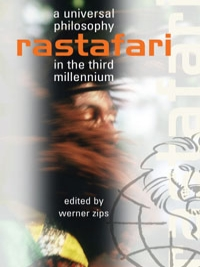Rastafari
A Universal Philosophy in the Third Millenium
Essay by Werner Zips
Editions
 |
2005 | Ian Randle Publishers | 978-976-637-227-9 | English |
Summary
Since the emergence of the Rastafari movement of Jamaica in the 1930s, social sciences and theology have made numerous efforts to categorize it. In strong opposition to such attempts, practitioners have continually maintained that Rastafari is indefinable; that as a lived and living philosophy Rastafari combines ancient roots with ever emerging routes. These historical, dynamic and creative dimensions challenge any homogenizing attempts of social sciences that seek to freeze the “movement” in time and space. African origins are as important as Diasporean experiences for Rastafari in the manifold struggles to “downstroy” slavery and oppression. But the strong universal appeal towards the realization of equal rights and justice implodes analytical and practical limitations of a Black Atlantic culture. This volume brings together contributions from well known Rastafari practitioners and social scientists as a counter to the unilateral politics of outside definition, identification, and misrepresentation. They discuss Rastafari as an experiential philosophy; its historical and contemporary global cultural dimensions and its contribution to issues such as decolonization, reparations and repatriation.
Options
Latest books
© 2007-2026 United Reggae. All Rights Reserved. Reproduction in whole or in part is prohibited. Read about copyright
Terms of use | About us | Contact us | Authors | Newsletter | A-Z






